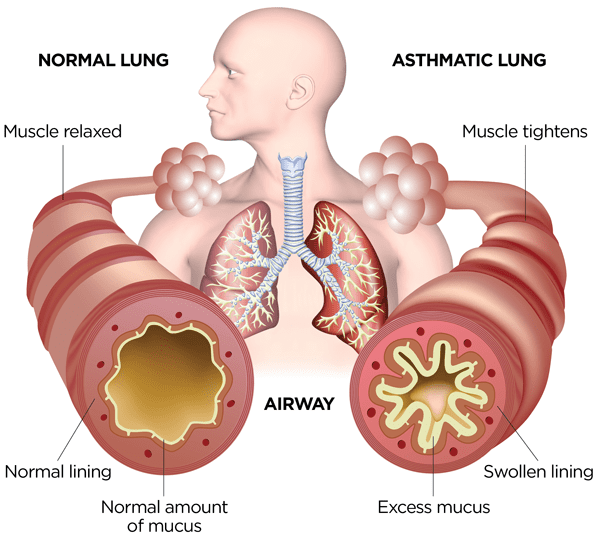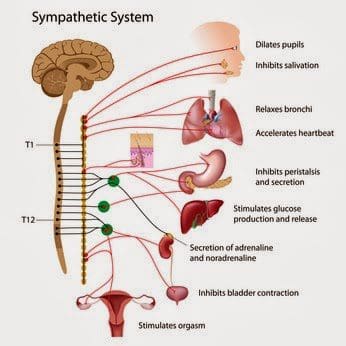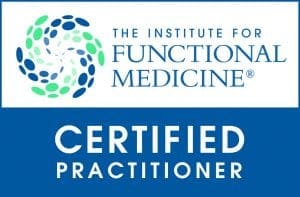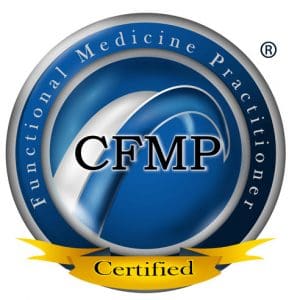Table of Contents
Introduction
The body requires the heart in the cardiovascular system to pump oxygen-riched blood to all the muscles, tissues, and organs to keep it functioning. While the heart pumps the blood to the body, the lungs in the pulmonary system help the body by making the host breathe in the fresh air, remove the gases from the body, and helps delivers oxygen to the body cells. When issues begin to affect the lungs and the heart, it can cause the individual to develop cardiovascular disorders and a lung condition known as asthma to disrupt the body and cause pain to the individual. Today’s article looks at what asthma is, how it affects the body, and how somatic issues from asthma can affect the cardiovascular system. We refer patients to certified providers specializing in cardiovascular and pulmonary treatments that help those suffering from asthma attacks. We also guide our patients by referring to our associated medical providers based on their examination when it’s appropriate. We find that education is the solution to asking our providers insightful questions. Dr. Alex Jimenez DC provides this information as an educational service only. Disclaimer
Can my insurance cover it? Yes, it may. If you are uncertain, here is the link to all the insurance providers we cover. If you have any questions or concerns, please call Dr. Jimenez at 915-850-0900.
What Is Asthma?
Have you experienced chest pains that are causing issues in your arms? How about the shortness of breath that causes you to have difficulty breathing? Do you have trouble sleeping due to waking up coughing or breathing rapidly? These are the signs and symptoms of you experiencing an asthma attack. Research studies have defined an asthma attack as a chronic disease that causes inflammatory narrowing of the air pathways to the lungs. When a person starts to suffer from an asthma attack, it can cause the lung capacity volume to be weakened and produce an excessive amount of mucus in the airways. Many factors like genetics, allergens, obesity, stress and environmental exposures can trigger a person to have an asthma attack. When these factors begin to affect the lungs, it can cause an overlap of other risk profiles to affect the body.
How Does It Affect The Body?
The lungs help the body intake fresh air and exhale the gases. The lungs provide an autonomic innervation that has a typical casual relationship to the autonomic innervation of the heart. This causal relationship also works with the parasympathetic innervation of the vagus nerve and the prominent sympathetic innervation of the spine’s thoracic region. With the lungs providing the functionality of breathing in the body, it is considered a musculoskeletal act in the service of a visceral system requirement that straddles the somatovisceral interface. Regarding individuals with asthma, research studies have shown that it can cause somatic symptoms like chest pains, cold hands and feet, and blurred vision. These somatic symptoms can affect the lungs and increase the risk associated with cardiovascular diseases.
The Difference Between Somatic & Visceral Pain- Video
Have you noticed chest pain frequently occurring and causing muscle stiffness in your arms? Are you gasping constantly that it irritates your throat? How about the shortness of breath that makes it difficult to sleep? You could be experiencing an asthma attack that can trigger somatovisceral issues that affect the body. The video above explains the difference between somatic and visceral pain affecting the body. Somatic pain is when the muscles trigger the organs, while visceral pain is the opposite, where the internal organs affect the muscles. When asthma affects the airway muscles, it can cause the heart muscles to work extra harder, causing chest and upper-mid back pains in the body.
Asthma Causing Somatic Issues To The Cardiovascular System
The heart and lungs have a casual relationship as the lungs help the body to breathe in the fresh air, and the heart takes the oxygen-riched blood to supply the rest of the organs, muscles, and tissues in the body. Through the sympathetic system, the heart communicates with the parasympathetic, sympathetic, and sensory pathways that allow the coordination of the cardiac tone, causing the heart to accelerate its beat in the body. When an asthma attack begins to affect the cardiovascular system, research studies have found that the sudden restriction of the airflow pathways from an asthma attack is a development for upcoming cardiovascular issues. The heart muscles will coincidentally begin to strain as the sensory innervations cause immense pain. The sudden constriction of the airways during an asthma attack can also affect the thoracic spine and reach the heart. One of the ways to reduce cardiovascular issues that affect the thoracic spine is spinal manipulation. Research studies have found that manipulating the thoracic spine can help increase the motion of the thoracic cage and enhance the arterial airflow supply to regulate heartbeat and lung capacity.
Conclusion
Asthma is a chronic disorder that causes inflammation and narrows the air pathways that restrict oxygen from entering the heart. The lungs and the heart have a casual relationship to the body, providing oxygen and blood flow to the organs, muscles, and tissues to function correctly. When exposed to environmental factors, it can cause restriction to the airway pathways to the lungs, causing wheezing and coughing motion that can cause somatic visceral dysfunction in the cardiovascular system and the thoracic spine. When this happens, treatments like chiropractic therapy can manipulate the thoracic spine and restore the air pathways to improve cardio and lung capacity.
References
Hashmi, Muhammad F, et al. “Asthma.” In: StatPearls [Internet]. Treasure Island (FL), StatPearls Publishing, 16 Feb. 2022, https://www.ncbi.nlm.nih.gov/books/NBK430901/.
Kaminskyj, Adrienne, et al. “Chiropractic Care for Patients with Asthma: A Systematic Review of the Literature.” The Journal of the Canadian Chiropractic Association, Canadian Chiropractic Association, Mar. 2010, https://www.ncbi.nlm.nih.gov/pmc/articles/PMC2829683/.
Pollevick, Matias E, et al. “The Relationship between Asthma and Cardiovascular Disease: An Examination of the Framingham Offspring Study.” Chest, American College of Chest Physicians, Apr. 2021, https://www.ncbi.nlm.nih.gov/pmc/articles/PMC8501004/.
Ringsberg, K C, et al. “Psychological Differences between Asthmatics and Patients Suffering from an Asthma-like Condition, Functional Breathing Disorder: A Comparison between the Two Groups Concerning Personality, Psychosocial and Somatic Parameters.” Integrative Physiological and Behavioral Science : the Official Journal of the Pavlovian Society, U.S. National Library of Medicine, 1993, https://pubmed.ncbi.nlm.nih.gov/8117581/.
Disclaimer
General Disclaimer
Professional Scope of Practice *
The information herein on "Asthma Causing Issues In The Cardiovascular System" is not intended to replace a one-on-one relationship with a qualified health care professional or licensed physician and is not medical advice. We encourage you to make healthcare decisions based on your research and partnership with a qualified healthcare professional.
Blog Information & Scope Discussions
Welcome to El Paso's Premier Wellness and Injury Care Clinic & Wellness Blog, where Dr. Alex Jimenez, DC, FNP-C, a Multi-State board-certified Family Practice Nurse Practitioner (FNP-BC) and Chiropractor (DC), presents insights on how our multidisciplinary team is dedicated to holistic healing and personalized care. Our practice aligns with evidence-based treatment protocols inspired by integrative medicine principles, similar to those found on this site and our family practice-based chiromed.com site, focusing on restoring health naturally for patients of all ages.
Our areas of multidisciplinary practice include Wellness & Nutrition, Chronic Pain, Personal Injury, Auto Accident Care, Work Injuries, Back Injury, Low Back Pain, Neck Pain, Migraine Headaches, Sports Injuries, Severe Sciatica, Scoliosis, Complex Herniated Discs, Fibromyalgia, Chronic Pain, Complex Injuries, Stress Management, Functional Medicine Treatments, and in-scope care protocols.
Our information scope is multidisciplinary, focusing on musculoskeletal and physical medicine, wellness, contributing etiological viscerosomatic disturbances within clinical presentations, associated somato-visceral reflex clinical dynamics, subluxation complexes, sensitive health issues, and functional medicine articles, topics, and discussions.
We provide and present clinical collaboration with specialists from various disciplines. Each specialist is governed by their professional scope of practice and their jurisdiction of licensure. We use functional health & wellness protocols to treat and support care for musculoskeletal injuries or disorders.
Our videos, posts, topics, and insights address clinical matters and issues that are directly or indirectly related to our clinical scope of practice.
Our office has made a reasonable effort to provide supportive citations and has identified relevant research studies that support our posts. We provide copies of supporting research studies upon request to regulatory boards and the public.
We understand that we cover matters that require an additional explanation of how they may assist in a particular care plan or treatment protocol; therefore, to discuss the subject matter above further, please feel free to ask Dr. Alex Jimenez, DC, APRN, FNP-BC, or contact us at 915-850-0900.
We are here to help you and your family.
Blessings
Dr. Alex Jimenez DC, MSACP, APRN, FNP-BC*, CCST, IFMCP, CFMP, ATN
email: coach@elpasofunctionalmedicine.com
Multidisciplinary Licensing & Board Certifications:
Licensed as a Doctor of Chiropractic (DC) in Texas & New Mexico*
Texas DC License #: TX5807, Verified: TX5807
New Mexico DC License #: NM-DC2182, Verified: NM-DC2182
Multi-State Advanced Practice Registered Nurse (APRN*) in Texas & Multistate
Multistate Compact RN License by Endorsement (42 States)
Texas APRN License #: 1191402, Verified: 1191402 *
Florida APRN License #: 11043890, Verified: APRN11043890 *
* Prescriptive Authority Authorized
ANCC FNP-BC: Board Certified Nurse Practitioner*
Compact Status: Multi-State License: Authorized to Practice in 40 States*
Graduate with Honors: ICHS: MSN-FNP (Family Nurse Practitioner Program)
Degree Granted. Master's in Family Practice MSN Diploma (Cum Laude)
Dr. Alex Jimenez, DC, APRN, FNP-BC*, CFMP, IFMCP, ATN, CCST
My Digital Business Card
RN: Registered Nurse
APRNP: Advanced Practice Registered Nurse
FNP: Family Practice Specialization
DC: Doctor of Chiropractic
CFMP: Certified Functional Medicine Provider
MSN-FNP: Master of Science in Family Practice Medicine
MSACP: Master of Science in Advanced Clinical Practice
IFMCP: Institute of Functional Medicine
CCST: Certified Chiropractic Spinal Trauma
ATN: Advanced Translational Neutrogenomics






















